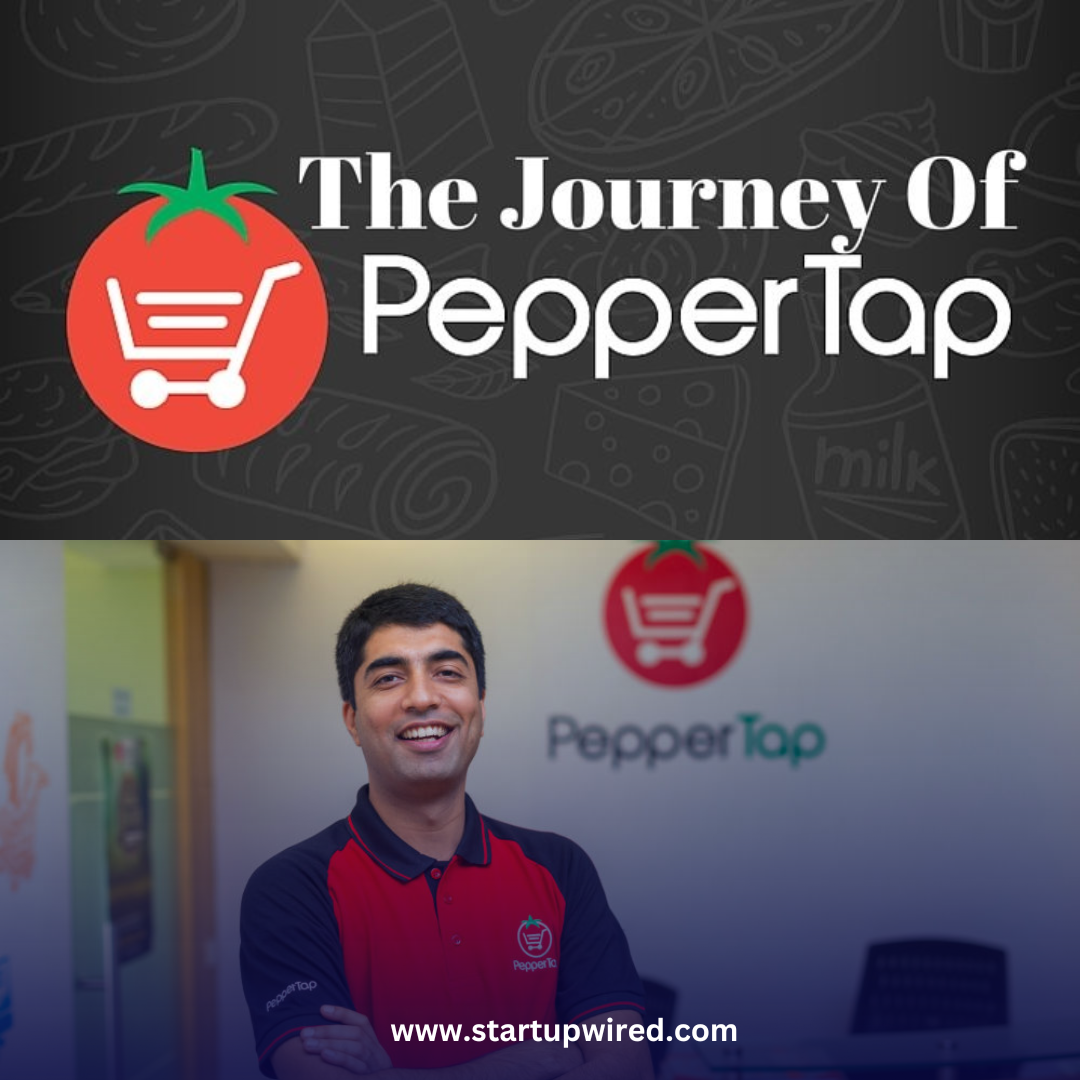Navneet Singh, a visionary entrepreneur in India’s e-commerce and logistics space, rose to prominence with the founding of PepperTap in 2014. Starting as a hyperlocal grocery delivery platform, PepperTap was one of the first movers in India’s burgeoning online grocery delivery sector, competing with giants like Grofers and BigBasket. Singh, along with co-founder Milind Sharma, had previously built Nuvo Logistics, a reverse logistics service provider, which laid the foundation for PepperTap’s rapid expansion.
Early Success and Hyper-Growth
PepperTap quickly gained momentum in its early days, growing aggressively across multiple Indian cities. By 2015, the company had raised $46 million in funding from prominent investors such as Sequoia Capital, SAIF Partners, and Snapdeal, one of India’s major e-commerce players at the time. The company was operating in 18 cities initially, with plans to expand to over 75 cities by the end of 2015.
Navneet Singh’s strategy for PepperTap was centered on an asset-light business model, where the company did not maintain its own inventory or warehouses. Instead, it tied up with local retailers to fulfill customer orders. This approach reduced operational costs and made it easier for PepperTap to scale quickly. Within just a few months of launching, the platform was processing around 17,000 orders per day, with that number spiking to 35,000 orders on sale days. The company’s gross merchandise value (GMV) was projected to reach over $250 million by the end of the fiscal year 2015-16.
Strategic Challenges and Market Saturation
Despite the initial success, PepperTap faced significant challenges as the online grocery delivery market in India became increasingly competitive. While the company’s expansion plans were ambitious, they also came at a cost. Operating in the hyperlocal delivery space required a large workforce, and the logistical challenges of managing deliveries across various locations began to weigh on the company. At its peak, PepperTap had over 3,000 employees, with plans to double its workforce by the end of 2015. However, this rapid scaling led to operational inefficiencies and increased costs.
Additionally, the company’s reliance on local retailers for inventory management sometimes led to issues with stockouts and inconsistent product availability. This, combined with the relatively low margins in the grocery business, made it difficult for PepperTap to maintain profitability. At the same time, competitors like BigBasket and Grofers were investing heavily in infrastructure, focusing on building their own warehouses and offering a wider range of products, which gave them an advantage in customer retention.
The Fall: Shutting Down Grocery Delivery Operations
In 2016, just two years after its launch, PepperTap made the difficult decision to shut down its grocery delivery business. The company cited the high cost of operations and the unsustainable nature of the hyperlocal grocery delivery model as key reasons for the closure. While other players in the market were able to secure additional funding and invest in long-term strategies, PepperTap’s asset-light model, which initially seemed like an advantage, ultimately became a weakness in a market that required heavy capital investment for success.
Navneet Singh himself acknowledged the challenges of operating in the hyperlocal grocery delivery space, stating that the investment climate at the time made it difficult to secure the necessary funds for continued expansion. In the end, PepperTap was unable to compete with larger, better-funded rivals and shifted its focus back to the logistics space with NuvoEx, the logistics arm of the business.
PepperTap’s Legacy and Lessons Learned
While PepperTap’s grocery delivery operations ultimately shut down, the company’s rise and fall offer valuable lessons for entrepreneurs in the fast-paced world of Indian startups. Navneet Singh’s vision for PepperTap was ambitious, and the company achieved significant success in a short period. However, the challenges of scaling a hyperlocal delivery business in a cost-sensitive market like India proved insurmountable.
Navneet Singh’s decision to pivot back to logistics with NuvoEx demonstrated his ability to adapt to changing market conditions. NuvoEx, which provided logistics services for e-commerce companies, continued to operate after the shutdown of PepperTap and helped Singh maintain his presence in the Indian startup ecosystem.
Current Endeavors and Future Outlook
As of 2024, Navneet Singh continues to be an influential figure in India’s logistics and e-commerce sectors. While PepperTap’s grocery delivery business was short-lived, Singh’s entrepreneurial journey serves as a reminder of the risks and rewards associated with high-growth startups. His ability to build and scale businesses like NuvoEx demonstrates resilience and a keen understanding of the Indian market.
In a market where technology and consumer behavior are constantly evolving, Singh’s experience with PepperTap has likely shaped his future ventures, emphasizing the importance of adaptability, sustainable growth, and efficient operations.
Conclusion
Navneet Singh’s story with PepperTap is a classic example of the highs and lows of entrepreneurship. From securing significant funding and expanding aggressively to facing the harsh realities of operational challenges and market competition, Singh’s journey offers invaluable lessons to other entrepreneurs. While PepperTap’s grocery delivery business may no longer exist, the legacy of the company and the lessons learned from its rise and fall continue to influence the Indian startup ecosystem.
PepperTap’s short but eventful journey reflects both the opportunities and pitfalls of operating in the hyperlocal delivery space. For Navneet Singh, the experience has not only added to his credentials as a serial entrepreneur but also solidified his reputation as a visionary in India’s logistics industry. As India’s e-commerce and logistics sectors continue to evolve, it will be interesting to see what the future holds for Singh and his ventures.
